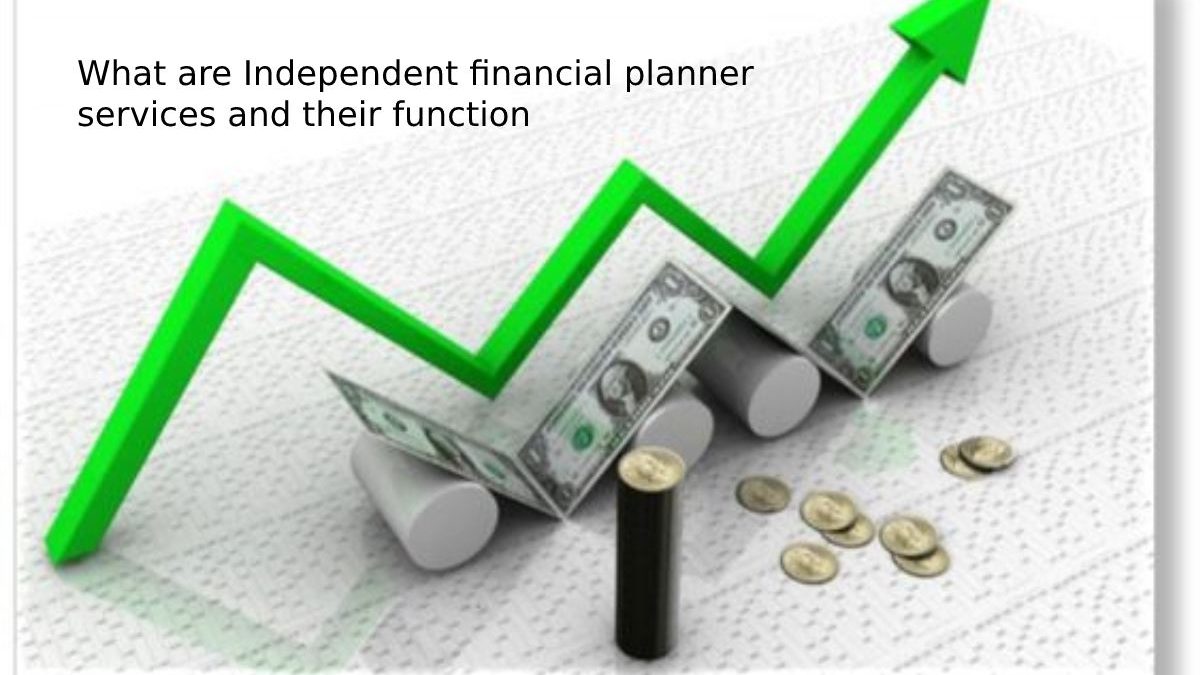An independent financial planner is a professional who offers his knowledge and services to anyone who requests them but without being subject to an economic entity and being able to recommend products of any entity according to his criteria.
Table of Contents
What is an Independent Financial Planner?
A financial advisor helps clients better manage their resources and achieve their financial goals. Provides advice on investments, estate planning, retirement, taxes, and saving for essential expenses, such as a child’s higher education or long-term projects.
That is, advisors work financial operations on behalf of their clients. For this reason, in this trade, perhaps more than in any other, it is crucial to know who the financial manager is charging for their services.

What does an Independent Financial Advisor do?
Specifically, this figure manages the financial products of his client while providing sound advice. It does not manufacture financial products; it simply sells the best that the market offers according to the profile of each client.
His knowledge in legal and tax fields also allows him to guide the client towards the investment that best suits the shape of each one. In addition, you must anticipate the expectations of each client to effectively guide them towards the financial options that may be of most interest to them.
Why is this Figure Cheaper than a Bank?
As for its services, an independent financial adviser cannot have economies of scale, not the Bank. A bank advisor is generally well paid since he has direct and indirect support that will generate additional costs included in the Bank’s provision.
Therefore, it will not generate more costs for the client than necessary. Moreover, his remuneration is externalised, not allowing him to function at high prices. Finally, their remuneration is well known, while the Bank’s, dispersed across numerous services, is not.
Independent financial advisors work at Corredores de Banca y Seguros to offer the best conditions to our clients. From 0.25% management fee.
Requirements to be an Independent Financial Advisor
- Before hiring an independent financial advisor, it is essential to make sure that the person we are going to hire meets a series of requirements:
- The independent advisor must be regulated and supervised by the National Securities Market Commission (CNMV) or its equivalent at the European level.
- The independent advisor will have an obligation to verify the total prohibition of receiving any incentive for the work performed.
- Independent financial advisers should not have their product since it increases the risk of conflicts of interest.
- Independent financial advisors must be accredited. In addition, being an independent financial adviser, your signature should not appear on any other economic entity or institution. In this way, the independence and objectivity of the advisor a guarantee.
- Lastly, you will need to select the best products for your customer. Therefore, our independent consultant must have no restrictions when recommending and analysing outcomes.
At W&K, a digital hub for financial content, we have designed Recertify, a continuous recertification program throughout the year.
Now you can access Recertify for seven days free. At W&K, we put at your disposal the material from the best sources and recognised prestige in their areas of knowledge. Flexible, digitally customisable, and accredited by the National Securities Market Commission (CNMV).
How Much Does a Financial Advisor Earn?
Finance, banking, and insurance top the Mexican Institute for Competitiveness (IMCO) list. A financial advisor’s income varies according to the institution in which one works. In most job openings, a financial advisor receives a base salary plus sales-based commissions or performance bonuses. According to records on Indeed, the base salary of a financial advisor is 8,883 pesos per month.
In the case of an independent financial advisor, they can charge based on three different factors:
1. For Advice
It is the most mutual way a financial advisor charges for his services, and the amount depends on the assets he manages and the contracts he has. In this case, it will take between two and two-point-five per cent.
2. A Fixed Fee
The advisor charges his client a limited monthly amount or for hours worked, regardless of the activities and the results obtained.
3. By Commission
The advisor takes a percentage of the benefits received by the client; that is, the higher the benefits, the higher his commission.
4. Duties of a Financial Planner
What does a financial advisor do? There are several aspects in which a financial business advisor can help you.
Depending on whether you are a company or request it to manage your finances, these are the functions of a financial advisor:
Parts of a Consultant in a Company
Increase cash flow. A financial advisor must look for new tools and strategies to increase the company’s capital.
It acts as a guide to making investment decisions for the company. Using as a base their knowledge in finance and markets
Advise the company’s profits to, for example, have a supplement for retirement.
Functions of a Commercial Advisor in a Bank
Establish business relationships with customers with products adapted to their risk profile. Seek new opportunities in the management of funds marketed by the Bank.
Management of funds marketed by the bank you work for and finding new business opportunities—exercise commercial with the entity’s clients to advise them through the products of the banking entity.
Duties of an Independent Financial Planner
Unlike the commercial or dependent, the independent financial advisor does not charge commissions for the products he sells but receives a fixed salary from the client he advises.
It is recommended to hire an independent financial adviser, although the service offers high net, worth individuals.
However, thanks to the new MiFID II regulations, the focus is on avoiding conflicts of interest.
The trend, therefore, is to bring the figure of the independent professional closer to the public. Although this will be possible, it will be necessary for much financial education.
The functions of the independent financial professional are:
- Accompany the client in their investment decisions
- Help you achieve your financial goals
- Offer you financial products adapted to your risk profile
Difference Between a Financial Advisor and a Financial Agent
The financial adviser should not be confused with the financial agent, who defines as having a more global vision of the economy.
In other words, the function of an agent will be more similar to that of an expert consultant in finance, external and punctual.
An advisor has to do with periodic monitoring of the client’s objectives and the ability to recommend among a series of financial products that he manages and knows.
Conclusion
A certified financial advisor is a person who will help you achieve your financial goals. To manage your savings and earn more money in the future.
It is not someone who “sells” your products but advises you to find which of them best fit your needs and your profile. Set yourself a goal and start the journey towards financial freedom!

